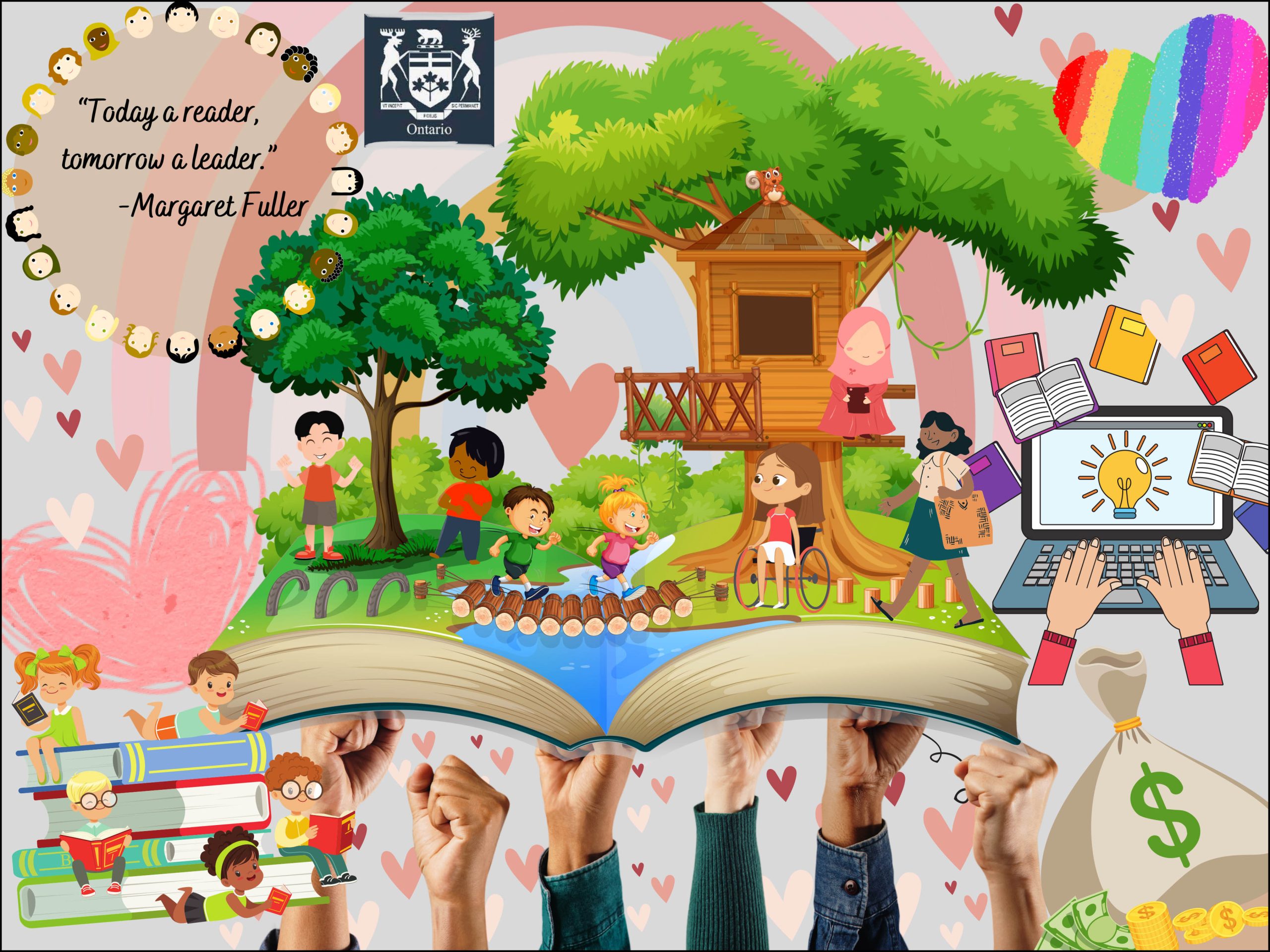18 The Right to Read

By Sophia Del Medico
This digital collage is about the social justice issue in education called The Right to Read. The Ontario Human Rights Commission (OHRC) launched a public inquiry into Ontario’s public education to shed light that the right to read is a basic and necessary right. This inquiry held all important stakeholders and led to the conclusion that the public school system is failing those that are most vulnerable. For example, those who have learning disabilities, are dyslexic, are from marginalized communities, and many others. These learners are not receiving evidence-based approaches to help them read (Ontario Human Rights Commission, 2019). The OHRC (2019) gave a hundred and fifty-seven recommendations to address the gaps. Issues such as accommodations, reading interventions, professional assessments, and raising awareness of systemic issues.
The Dyslexia Project states that there are four pillars of literacy: Education, Economics, Empathy and Equity. From the above OHRC inquiry, it can be concluded that the education system is notwithstanding its duty to ensure there is equitable access to literacy materials. From the Universal Declaration of Human Rights (1973) Article 26, “Everyone has the right to education.” However, not all are given the right to read, which is a fundamental component of education. “The assumption that some students with disabilities will never be able to read is a form of ableism” (Decoding Dyslexia, 2021, para 5).
I believe this to be a matter of economic value, investing in giving learners the ability to read is not high on the political radar. Although Steven Lecce tweeted “Ontario will make a 25 million dollar investment in evidence-based reading interventions programs and professional assessment supports” this is only half the battle. According to the OHRC, it is also about access to literacy materials, which Steven Lecce did not address a plan for. Subsequently, I was unable to locate any information on the release of said funds that were planned to be allocated for the school year 2022-2023.
References
Decoding Dyslexia. (2021, January 27). The right to read: Legal and human rights resources. Decoding Dyslexia Ontario. Retrieved January 24, 2023, from https://decodingdyslexiaon.org/legal-rights/
Lecce, S. (2022, February 28). Our strong commitment to reform to strengthen literacy skills. Twitter. Retrieved January 14, 2023, from https://twitter.com/sflecce/status/1498414570964144131
Ontario Human Rights Commission. (2019, October 3). Right to read: Public inquiry into human rights issues affecting students with reading disabilities. Right to Read inquiry report. Ontario Human Rights Commission. Retrieved January 14, 2023, from https://www.ohrc.on.ca/en/right-to-read-inquiry-report
The Dyslexia Project. (2021, September 3). Literacy is a social justice issue. The Dyslexia Project. Retrieved January 14, 2023, from http://www.dyslexiaproject.com/cause/literacy-is-a-moral-imperative-and-civil-right
United Nations. (1973). Universal declaration of human rights. United Nations. Retrieved January 18, 2023, from https://www.un.org/en/about-us/universal-declaration-of-human-rights

